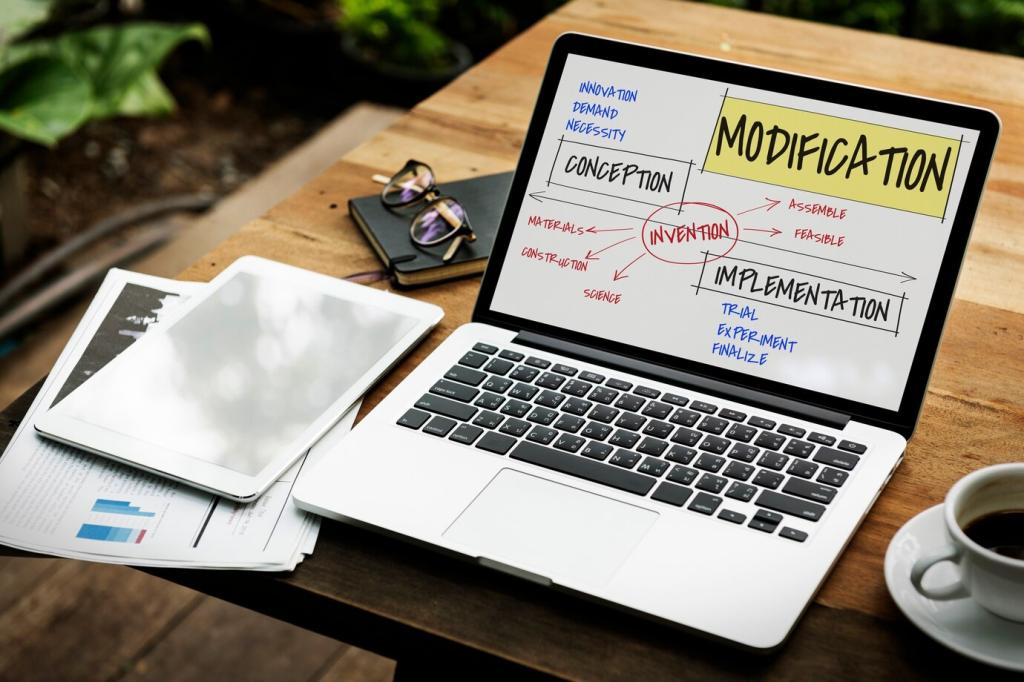Building Trust and Accountability in Remote Work Environments
Establishing trust and accountability is essential for the success of remote work environments. As organizations adapt to new digital workflows and distributed teams, the foundation of mutual reliance ensures productivity, motivation, and overall satisfaction. This page explores the critical elements necessary to foster a remote culture where employees feel trusted and accountable, ensuring sustained organizational growth and a harmonious virtual workplace.

Open Communication Channels
Maintaining open communication is crucial when workforces are dispersed. Remote environments sometimes breed uncertainty and misinformation, so providing regular updates and encouraging candid conversations helps alleviate doubts. Transparent channels, such as recurring video meetings, digital town halls, and accessible leadership, ensure that every team member feels informed and included. Consequently, employees can express concerns, seek feedback, and share successes, all of which foster an atmosphere of trust.

Consistent Leadership Practices
Leaders play a pivotal role in inspiring trust across remote teams. Consistent leadership involves aligning words with actions, meeting commitments, and providing ongoing support even without physical presence. When employees observe their leaders acting reliably and demonstrating empathy, it sets a benchmark for the broader team. This consistency reassures individuals that they can count on their leaders, making it easier for them to work confidently and take necessary risks without fear of unwarranted repercussions.

Empowering Employees
Empowerment is a fundamental aspect of trust. Providing employees with autonomy to manage their schedules, make decisions, and influence projects communicates belief in their capabilities. Empowered employees are more motivated and engaged because they feel their skills and judgment are respected. This proactive stance leads to a virtuous cycle: as employees take ownership, they strive to meet expectations, strengthening the bond of trust within the team.

Building a Culture of Accountability
Establishing Clear Processes
Robust processes are critical to ensuring everyone knows how work moves forward and what is expected at each stage. Workflow documentation, project management systems, and shared calendars help remote workers stay aligned and accountable. Standardized processes minimize confusion and provide employees with a reliable roadmap for delivering results. When systems are in place, accountability becomes a natural part of daily operations, rather than an afterthought.
Recognition and Rewards
Positive reinforcement remains a powerful driver of accountability. Recognizing and rewarding employees for consistently meeting or exceeding expectations fosters a sense of pride and motivation. In remote work settings, where achievements might otherwise go unnoticed, public acknowledgment of accomplishments emphasizes the value of accountability and encourages others to follow suit. Structured reward systems, whether formal or informal, signal to employees that their hard work matters and is integral to collective success.
Fostering Peer Accountability
Peer accountability is an often-overlooked aspect of remote work culture. When team members rely on each other to deliver, they are more likely to meet commitments to avoid letting colleagues down. Encouraging team collaboration, such as through group projects or shared objectives, helps build networks of mutual support. This not only enhances interpersonal trust but also distributes responsibility, ensuring accountability is shared by all, not just leaders.
